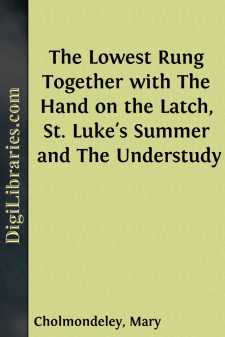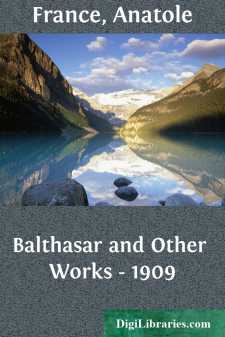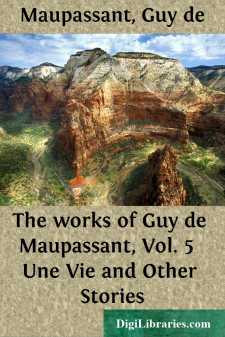Categories
- Antiques & Collectibles 13
- Architecture 36
- Art 48
- Bibles 22
- Biography & Autobiography 813
- Body, Mind & Spirit 142
- Business & Economics 28
- Children's Books 15
- Children's Fiction 12
- Computers 4
- Cooking 94
- Crafts & Hobbies 4
- Drama 346
- Education 46
- Family & Relationships 57
- Fiction 11828
- Games 19
- Gardening 17
- Health & Fitness 34
- History 1377
- House & Home 1
- Humor 147
- Juvenile Fiction 1873
- Juvenile Nonfiction 202
- Language Arts & Disciplines 88
- Law 16
- Literary Collections 686
- Literary Criticism 179
- Mathematics 13
- Medical 41
- Music 40
- Nature 179
- Non-Classifiable 1768
- Performing Arts 7
- Periodicals 1453
- Philosophy 64
- Photography 2
- Poetry 896
- Political Science 203
- Psychology 42
- Reference 154
- Religion 513
- Science 126
- Self-Help 84
- Social Science 81
- Sports & Recreation 34
- Study Aids 3
- Technology & Engineering 59
- Transportation 23
- Travel 463
- True Crime 29
Sort by:
by:
Walter Pater
I. A PRINCE OF COURT PAINTERS EXTRACTS FROM AN OLD FRENCH JOURNAL Valenciennes, September 1701. [5] They have been renovating my father's large workroom. That delightful, tumble-down old place has lost its moss-grown tiles and the green weather-stains we have known all our lives on the high whitewashed wall, opposite which we sit, in the little sculptor's yard, for the coolness, in...
more...
THE LAST GALLEY "Mutato nomine, de te, Britannia, fabula narratur." It was a spring morning, one hundred and forty-six years before the coming of Christ. The North African Coast, with its broad hem of golden sand, its green belt of feathery palm trees, and its background of barren, red-scarped hills, shimmered like a dream country in the opal light. Save for a narrow edge of snow-white surf,...
more...
SOME INFORMAL PRELIMINARY REMARKS The noted Brazilian critic, José Verissimo, in a short but important essay on the deficiencies of his country's letters, has expressed serious doubt as to whether there exists a genuinely Brazilian literature. "I do not know," he writes, "whether the existence of an entirely independent literature is possible without an entirely independent...
more...
PREFACE I have been writing books for five-and-twenty years, novels of which I believe myself to be the author, in spite of the fact that I have been assured over and over again that they are not my own work. When I have on several occasions ventured to claim them, I have seldom been believed, which seems the more odd as, when others have claimed them, they have been believed at once. Before I put my...
more...
by:
Stacy Aumonier
INTRODUCTION When Edward J. O'Brien asked me to cooperate with him in choosing each year's best English short stories, to be published as a companion volume to his annual selection of the best American short stories, I had not realized that at the end of my arduous task, which has involved the reading of many hundreds of stories in the English magazines of an entire year, I should find myself...
more...
I.—HE INTRODUCES HIMSELF "In less refined circles than ours," I said to Myra, "your behaviour would be described as swank. Really, to judge from the airs you put on, you might be the child's mother." "He's jealous because he's not an aunt himself. Isn't he, ducksey darling?" "I do wish you wouldn't keep dragging the baby into the conversation; we...
more...
GUY DE MAUPASSANTA STUDY BY POL. NEVEUX"I entered literary life as a meteor, and I shall leave it like a thunderbolt." These words of Maupassant to Jose Maria de Heredia on the occasion of a memorable meeting are, in spite of their morbid solemnity, not an inexact summing up of the brief career during which, for ten years, the writer, by turns undaunted and sorrowful, with the fertility of a...
more...
"After all," Count d'Avorsy said, stirring his tea with the slow movements of a prelate, "what truth was there in anything that was said at Court, almost without any restraint, and did the Empress, whose beauty has been ruined by some secret grief, who will no longer see anyone and who soothes her continual mental weariness by some journeys without an object and without a rest, in...
more...
by:
Anatole France
In those days Balthasar, whom the Greeks called Saracin, reigned in Ethiopia. He was black, but comely of countenance. He had a simple soul and a generous heart The third year of his reign, which was the twenty-second of his age, he left his dominions on a visit to Balkis, Queen of Sheba. The mage Sembobitis and the eunuch Menkera accompanied him. He had in his train seventy-five camels bearing...
more...
The most robust and masculine of recent French novelists is a typical Norman, sprung from an ancient noble family, originally of Lorraine, but long settled in the Pays de Caux. The traveler from England towards Paris, soon after leaving Dieppe, sees on his left hand, immediately beyond the station of St. Aubin, a handsome sixteenth-century house, the Château de Miromesnil, on a hill above the railway....
more...











